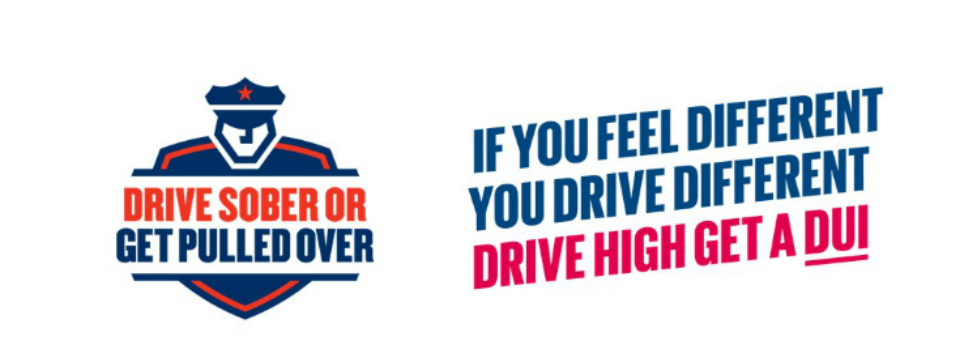EIGHTH EPISCOPAL DISTRICT
HEALTH MINISTRY (VOL 12)

Dr. Patricia D. McKenzie
Episcopal Coordinator for Health Ministries
PART I.
NATIONAL HEALTH OBSERVANCES FOR DECEMBER
A. National Drunk and Drugged Driving Prevention Month.
Source: https://spiritoftheholidays.org/
FACTS:
“The smallest of alcohol reduces the functionality of the brain. This leads to impaired processing of information, making decisions and coordinating muscle movement. The US National Highway Traffic Safety Administration (NHTSA) supports this position and they have published a chart to show the effects of small quantities of alcohol.
Some of the most common complications:
They also report that in 2020, I person died every 45 minutes in drunk-driving crashes. This was an increase from 2019. These deaths were preventable. The Spirit of Holidays reports that
1.New Year’s Eve is the day with the most DUI arrests
2. No sobering element because neither coffee nor showers will make a person sober up, only time does
3. Be safe and take a cab or use ridesharing after a party or accept a ride with a Designated Driver (non-drinking friend)
4. Watch Out for Pedestrians because pedestrian deaths increase during the holidays, all are inebriated and walk into the path of an innocent driver
5. Drugs also contribute to traffic deaths-don’t mix alcohol and prescription drugs. Be a responsible and driver.”
B. National Safe Toys & Gifts Month
Source: Health Equity Office. https://www.cdc.gov/obesity/children/
FACTS:
“Safety Tips to keep in mind this holiday season.
1. Balloons-keep deflated balloons away from children younger than 8 yrs. and discard all pieces of broken balloons immediately
2. Small balls and other toys with small parts keep away from children younger than 3 yrs.
3.Scooters and other riding toys, purchase helmets and all safety gear, be sure the size is correct and that all gear is worn at all times
4. Magnets-all building and play sets should be kept away from children under 5 yrs.
5. Once gifts are opened, immediately discard all plastic wrapping and other toy packaging
6. Keep toy for older children away from younger siblings
7. Keep all strings and strap on toys away from younger children.
8. Battery charging should be supervised by an adult and all instruction followed; remember that some batteries do not have a control to prevent overcharging.
9. The Product Safety Commission (https://www.cpsc.gov/) recommends cutting off cords, strings and straps on toy guitars or other toys when given to young children.
C. Crohn’s and Colitis Awareness Week—December 1-7.
FACTS:
FACTS: “Crohn’s Disease is an inflammatory disease that causes chronic inflammation of the gastrointestinal tract, also, called Inflammatory Bowel Disorder (IBD). It affects an estimated 3 million Americans. Men and women are equally likely to be affected; can occur at any age but is most prevalent in adolescents and adults between the ages of 15 and 35
2. Diet and stress may aggravate
3. The most common signs and symptoms include persistent diarrhea, rectal bleeding, urgent need to move bowels, abdominal cramps and pain, sensation of incomplete bowel evacuation, and constipation which can lead to bowel obstruction.
4. Even though, this disease is located in the GI tract, it can affect overall health and cause loss of appetite, weight loss, low energy and fatigue and delayed growth and development in children. Also, swollen and painful joints, skin complications as sores or rashes, kidney stones and loss of normal menstrual cycle.
5. Tobacco cessation is recommended because tobacco has a negative effect on people with this disease.
6. Some medications used may cause increased risk of secondary hypertension. The high blood pressure is usually resolved when the medication is discontinued. Discuss all symptoms with your doctor.
7. Depression affects 15-35% of patients, discuss any mood changes with your Dr.
8. Know that treatment may include medications, alterations in diet and nutrition and sometimes surgery.
PART II.
HEALING AIDS FROM THE BALM IN GILEAD
Source:
Click on Education and Inspiration and find to topics-Sunday Morning Health Corner and Resources
Facts:
PART III.
CENTER FOR DISEASE CONTROL AND PREVENTION
FACTS:
FACTS: “Reminder that everyone 6 months and older should get the vaccination and that there is still time to get it. #1 People at high risk for serious complications includes those with Asthma, Chronic Obstructive Lung Disease (COLD), blood disorder as Sickle Cell Disease, Heart disease as congestive heart failure and coronary artery disease, kidney disorders, and people who are obese with a BMI of 40 or higher. Also, people younger than 19 on long term aspirin or salicylate-containing medications. Others include adults 65and older, children younger than 12, and persons living long term care facilities. Flu can be treated. There are prescription antiviral drugs which fight influenza virus in the respiratory tract. Reminder that antibiotics only fight bacterial infections. The antiviral drugs work best when started within the flu vaccine two days of getting sick. Report early these signs and symptoms of fever, cough, sore throat, runny or snuffy nose, body aches, headaches, chills and fatigue. You should get the flu vaccine because antiviral drugs are not a substitute. Remember to take the flu vaccine every year.”
FACTS: “Theme-Handwashing in Communities: Clean Hands Save Lives. The recommended steps include-
1. Scrub for 20 seconds, all areas palms, back, between fingers and under fingernails
2. Soap and water worked into a lather will trap and remove germs
3. Wet hands before applying soap; bar and liquid soap work well
4. Turn water off with paper towel or any hands-free method
5. No soap and water. Use hand sanitizer with at least 60% alcohol No soap or hand sanitizer, rubbing hands under running water will rinse away some germs.
6. Always wash your hands before touching your eyes, nose and mouth; preparing or eating food
7. Always wash after blowing your nose, coughing or sneezing; using the restroom, touching any one sick, and touching any unclean surface.
8. You can help yourself and your loved ones stay healthy by washing your hands often and during key times when you are likely to get and spread germs.”trong>
